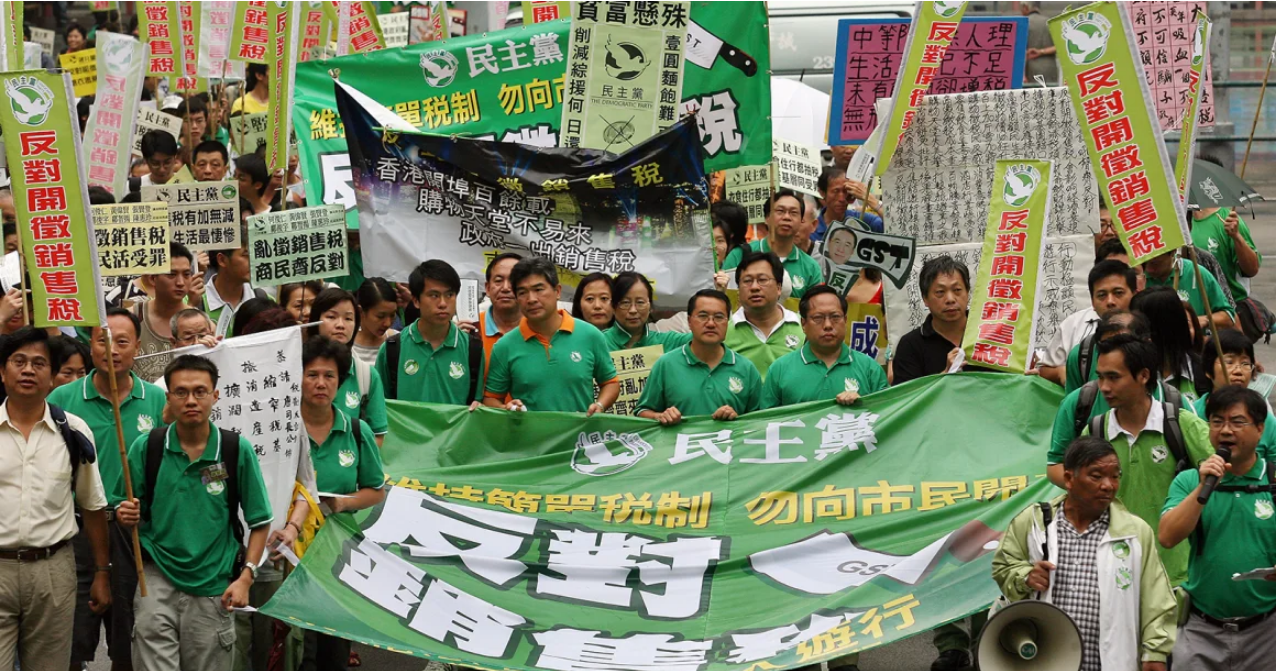Since Beijing does not tolerate opposition, Hong Kong’s oldest pro-democracy party is disbanding.
Hong Kong’s oldest and largest pro-democracy political party is moving to disband as Beijing’s sweeping crackdown on the city leaves even moderate opposition groups with no room to operate.
The Democratic Party, one of the leading voices of opposition in the semi-autonomous city for the past three decades, has started the process of dissolution following recent warnings from Chinese government officials, two of its veteran members told CNN.
“The message was that the party has to be disbanded or there will be consequences,” said one of them, Yeung Sum, a former Democratic Party chairman.
Fred Li, a former lawmaker, said a Chinese official told him that the party should not remain until the end of this year, when an election will be held.
Founded by liberal lawyers and academics three years before the former British colony’s 1997 handover to China, the Democratic Party had campaigned for universal suffrage and on matters from labor rights to conservation during a period when such issues were openly discussed in the city.
Widely seen as moderates willing to work with Beijing, Democratic Party leaders had spearheaded a significant voting bloc in the city’s legislature and were regularly afforded space to critique local government policy, until mass pro-democracy protests in 2019 ushered in a new and more restrictive political era.
Beijing’s crackdown in the years since, including the prosecution and jailing of pro-democracy leaders, has left the once-influential party rudderless as it contends with sweeping national security legislation and “patriots only” electoral reforms enacted in 2021 that make it nearly impossible for opposition candidates to stand for the city’s legislature.
Democratic Party chairman Lo Kin-hei told a news conference last Sunday that 90% of about 110 party members had voted to delegate power to a committee to start the dissolution process, adding he hoped a final vote would take place in the coming months.
“I hope Hong Kong’s political parties… will continue to work for the people,” Lo said. “We have always hoped to serve the Hong Kong people, and to do things that are good for society.”
The Democrats’ move to disband demonstrates Beijing’s unwillingness to allow even the mildest of dissenting voices to be heard in Hong Kong, say analysts.
John Burns, emeritus professor at the University of Hong Kong (HKU), said the party had “symbolized the promise of some kind of democratic development in Hong Kong, leading to universal suffrage as promised in the Basic Law,” referring to the city’s mini-constitution.
“A dissolution of the party reflects official Hong Kong’s turn away from popular participation, locally accountable government, and increased transparency toward more authoritarian rule,” Burns said.
Eric Lai, a research fellow at the Georgetown Center for Asian Law, said the Democrats’ move “shows there are no more feasible ways for groups to exist as an opposition party.”
“It’s self-conflicting for the government to suggest that nothing has changed,” he said.
In a statement to CNN, a city government spokesperson said decisions by individual groups “to disband or suspend operation are completely unrelated to the freedom or rights enshrined in Hong Kong law.”
Criticism of the government remains permitted in Hong Kong, “however strong, vigorous or critical” it may be, so long as it is “based on facts,” the spokesperson said. The Hong Kong government would “continue to resolutely discharge the duty of safeguarding national security,” they added.
No space for compromise
The Democrats had enjoyed relative political freedom following Hong Kong’s return to Chinese rule, even holding more seats than any other party in the mostly pro-Beijing legislature until 2004.
The party’s leaders were often the figureheads of major demonstrations, including an annual June 4 vigil to commemorate the Tiananmen Square massacre and a well-attended pro-democracy march held every July. (Neither event would be permitted on the Chinese mainland, and both are now effectively banned in Hong Kong).
But support for the Democrats plunged in 2010 after its leaders negotiated directly for universal suffrage with officials from Beijing’s liaison office in Hong Kong – a move seen as a betrayal by other pro-democracy groups.
The party was then pushed further to the sidelines by the emergence of a new generation of pro-democracy leaders and student activists during months-long protests for universal suffrage in 2014.













